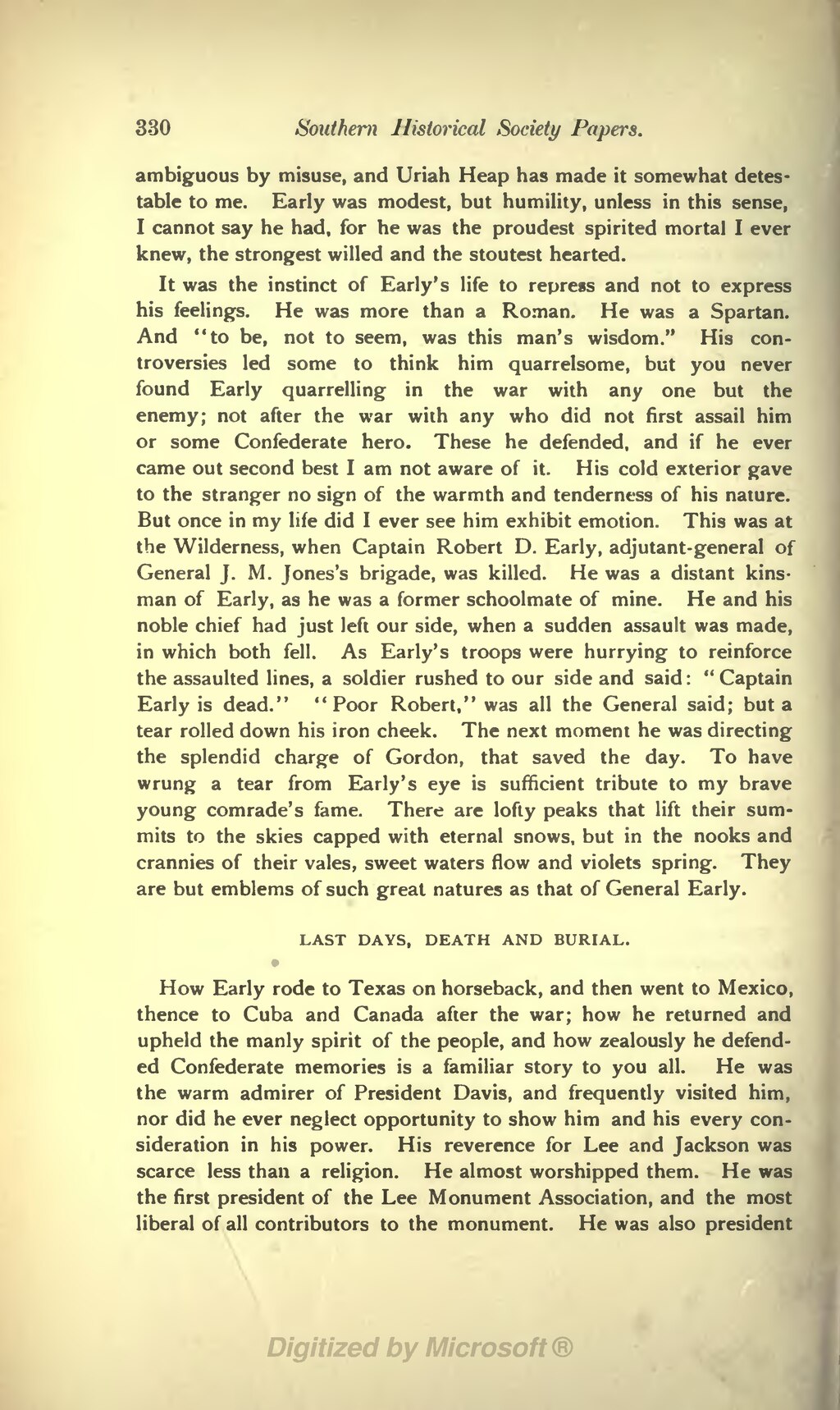330 Southern Historical Society Papers.
ambiguous by misuse, and Uriah Heap has made it somewhat detes- table to me. Early was modest, but humility, unless in this sense, I cannot say he had, for he was the proudest spirited mortal I ever knew, the strongest willed and the stoutest hearted.
It was the instinct of Early 's life to repress and not to express his feelings. He was more than a Roman. He was a Spartan. And "to be, not to seem, was this man's wisdom." His con- troversies led some to think him quarrelsome, but you never found Early quarrelling in the war with any one but the enemy; not after the war with any who did not first assail him or some Confederate hero. These he defended, and if he ever came out second best I am not aware of it. His cold exterior gave to the stranger no sign of the warmth and tenderness of his nature. But once in my life did I ever see him exhibit emotion. This was at the Wilderness, when Captain Robert D. Early, adjutant-general of General J. M. Jones's brigade, was killed. He was a distant kins- man of Early, as he was a former schoolmate of mine. He and his noble chief had just left our side, when a sudden assault was made, in which both fell. As Early's troops were hurrying to reinforce the assaulted lines, a soldier rushed to our side and said: " Captain Early is dead." "Poor Robert," was all the General said; but a tear rolled down his iron cheek. The next moment he was directing the splendid charge of Gordon, that saved the day. To have wrung a tear from Early's eye is sufficient tribute to my brave young comrade's fame. There are lofty peaks that lift their sum- mits to the skies capped with eternal snows, but in the nooks and crannies of their vales, sweet waters flow and violets spring. They are but emblems of such great natures as that of General Early.
LAST DAYS, DEATH AND BURIAL.
How Early rode to Texas on horseback, and then went to Mexico, thence to Cuba and Canada after the war; how he returned and upheld the manly spirit of the people, and how zealously he defend- ed Confederate memories is a familiar story to you all. He was the warm admirer of President Davis, and frequently visited him, nor did he ever neglect opportunity to show him and his every con- sideration in his power. His reverence for Lee and Jackson was scarce less than a religion. He almost worshipped them. He was the first president of the Lee Monument Association, and the most liberal of all contributors to the monument. He was also president
